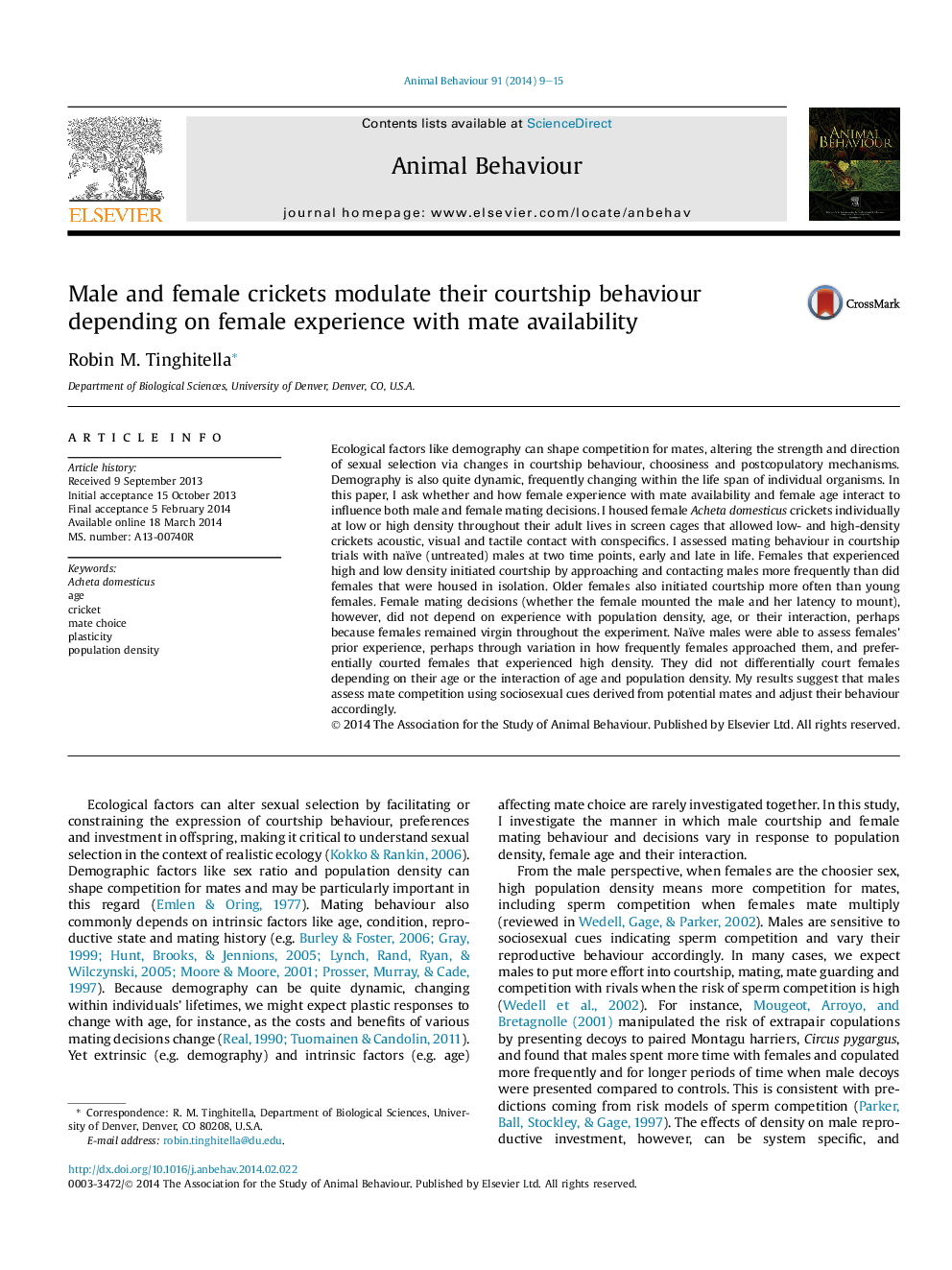| Article ID | Journal | Published Year | Pages | File Type |
|---|---|---|---|---|
| 8490617 | Animal Behaviour | 2014 | 7 Pages |
Abstract
Ecological factors like demography can shape competition for mates, altering the strength and direction of sexual selection via changes in courtship behaviour, choosiness and postcopulatory mechanisms. Demography is also quite dynamic, frequently changing within the life span of individual organisms. In this paper, I ask whether and how female experience with mate availability and female age interact to influence both male and female mating decisions. I housed female Acheta domesticus crickets individually at low or high density throughout their adult lives in screen cages that allowed low- and high-density crickets acoustic, visual and tactile contact with conspecifics. I assessed mating behaviour in courtship trials with naïve (untreated) males at two time points, early and late in life. Females that experienced high and low density initiated courtship by approaching and contacting males more frequently than did females that were housed in isolation. Older females also initiated courtship more often than young females. Female mating decisions (whether the female mounted the male and her latency to mount), however, did not depend on experience with population density, age, or their interaction, perhaps because females remained virgin throughout the experiment. Naïve males were able to assess females' prior experience, perhaps through variation in how frequently females approached them, and preferentially courted females that experienced high density. They did not differentially court females depending on their age or the interaction of age and population density. My results suggest that males assess mate competition using sociosexual cues derived from potential mates and adjust their behaviour accordingly.
Related Topics
Life Sciences
Agricultural and Biological Sciences
Animal Science and Zoology
Authors
Robin M. Tinghitella,
